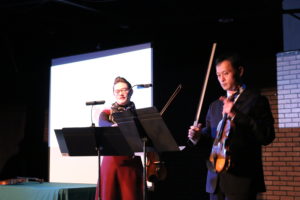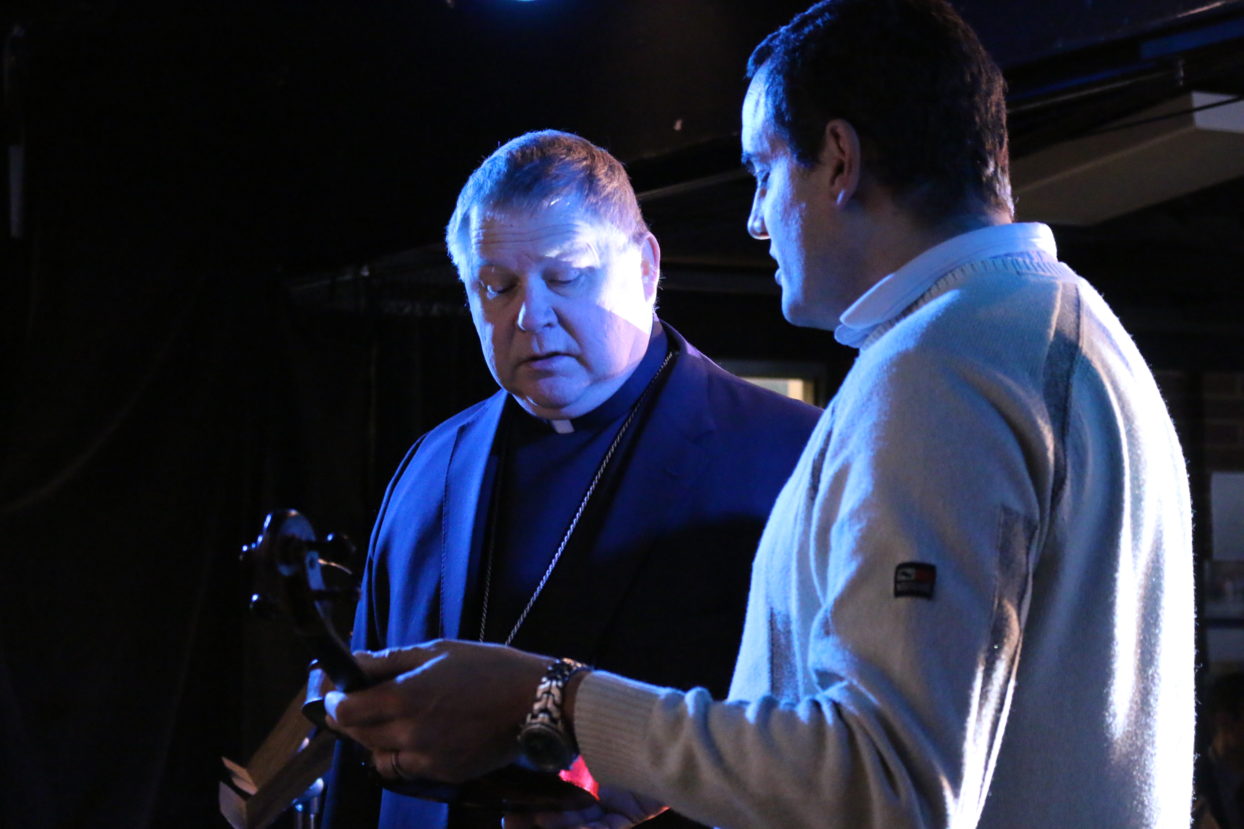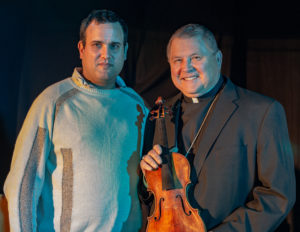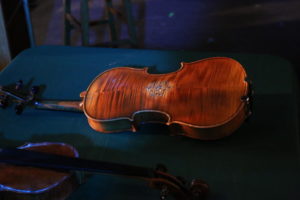Restored violins that survived the Holocaust come to Knoxville Catholic High School and are part of a special performance
By Emily Booker
Music is a powerful messenger that can communicate across language and culture. Sometimes, the instruments themselves can tell a story.
Bishop Richard F. Stika, Knoxville Catholic High School students, and guests were treated to a special program featuring restored violins from the Holocaust on Jan. 22. The violins are part of the Violins of Hope exhibit, which was in Knoxville in January.
Violins of Hope displays a collection of violins that survived the Holocaust. Though a witness of unimaginable tragedy, the instruments are also signs of hope in that they ensure the stories of the victims of the Holocaust will not be silenced.
The instruments serve to educate and memorialize the lives of prisoners in concentration camps through concerts, exhibitions, and other projects. The collection is owned by father-and-son team Amnon and Avshalom Weinstein, who are both violin makers.
Avshi Weinstein’s family began collecting and restoring the violins once owned by Jews during the Holocaust several years ago. From their shop in Tel Aviv, Israel, they collected instruments along with stories of their owners. Now, the violins travel in an exhibit to share the history of musicians in the Holocaust.
These instruments have survived concentration camps, ghettos, pogroms, and many long journeys to tell remarkable stories of injustice, suffering, resilience, and survival.
Today there are 72 violins in the collection.
“We are getting more and more stories all the time,” Mr. Weinstein said. He brought three of the violins to Knoxville Catholic High School.
Mr. Weinstein shared stories of musicians and their experiences of the Holocaust. Some played music from their villages as they sat in refugee camps hundreds of miles away after the war. Some were spared from the gas chambers by playing in concentration camp bands. Some, after being liberated from the camps, never wanted to play again.

Ruth Edwards and Gordon Tsai from the Knoxville Symphony Orchestra performed at Knoxville Catholic High School on two of the violins rescued from the Holocaust.
Gordon Tsai and Ruth Edwards of the Knoxville Symphony Orchestra performed a piece from the movie “Schindler’s List” on two of the violins.
Mr. Weinstein hoped that the students saw how music and instruments can speak across time and language barriers.
“Music is an international language. If you take two musicians, even if they won’t be able to talk because they come from two different places in the world, and even if the music that they know is different, they can still play and show emotion and basically talk through music,” he said.
The Stanford Eisenberg Knoxville Jewish Day School was honored to bring Violins of Hope: Strings of the Holocaust to Knoxville in January.
This program was brought to Knoxville to educate the community through unique, inspirational, and interfaith multimedia events.
On Jan. 23-24 at the Tennessee Theatre, more than 30 of the violins once silenced by the Holocaust sounded again as the center of two performances featuring the Knoxville Symphony Orchestra and Hallerin Hilton Hill.
The two evenings of poignant music, interwoven with powerful experiences of Holocaust survivors and the incredible stories of the violins, provided an emotional journey for those who attended.



